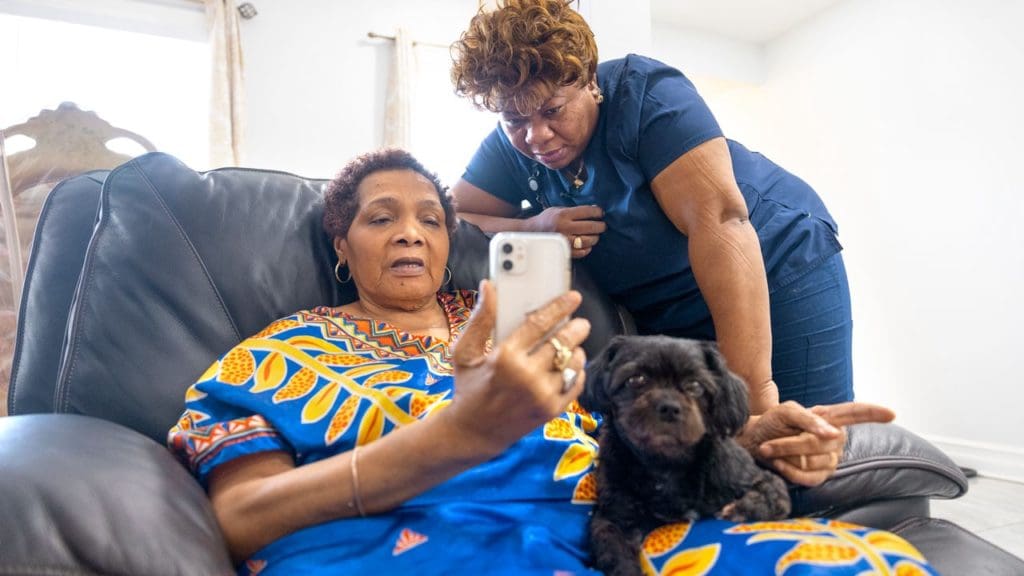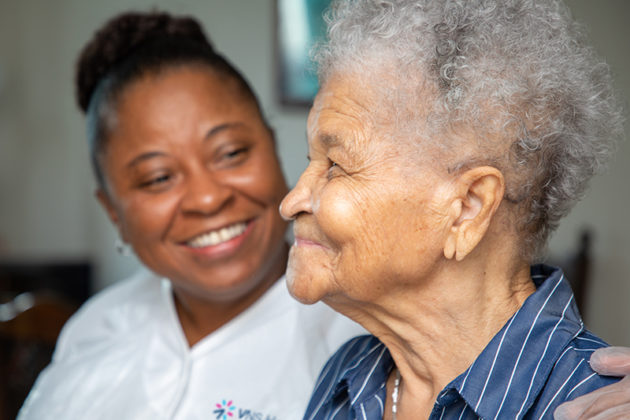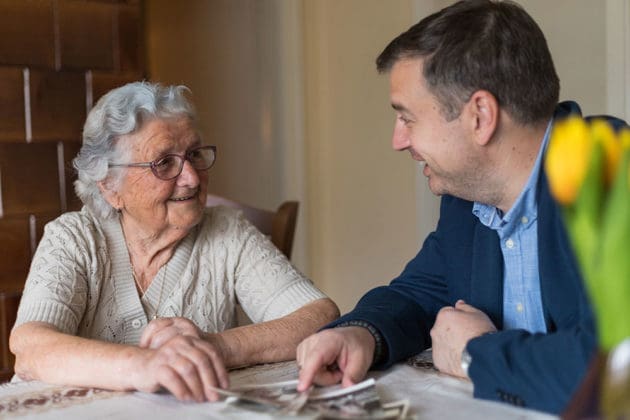
Every caregiver is unique, and your experiences might differ from those of your coworkers, your friends, and even your own siblings. This is especially true if you are a long-distance caregiver. If you live far from an aging loved one, your feelings and the responsibilities and roles you take on might not be what you expect.
Not being involved with day-to-day care can be frustrating, but accepting this reality is a key part of long-distance caregiving. And you can still be a part of the caregiving team.
Here are four ways that long-distance caregivers can support their loved ones — no matter where they are.
Do What You Can Do
Admitting that you can’t do it all — or even as much as you think you should — is hard. But you can still be involved even if you live far away. It just takes some planning.
Start by thinking about your skills and the kinds of things you like doing:
- Are you super organized? You can set up a system to keep your loved one’s medical records and other documents in order.
- Are you good at finances? You can pay bills, make a budget, and help manage the financial aspects of aging, like paying for home care.
- Do you like doing research? You can learn about your loved one’s condition and how it might change. You can look into ways to make their home safer. You can even explore self-care options for other caregiving family members.
Remember that you can’t be everywhere at once, and that’s okay. Caregiving is like a puzzle, and everyone can help put the pieces together.
After a hospital visit or injury, you have enough to worry about. We offer expert care so you or a loved one can recover safely in the comfort of home.
Call a Family Meeting
Staying connected is one of the best ways to support your loved one and your local caregiving family members. You have many options for staying in the loop as a long-distance caregiver. Texts and email are fine for quick updates, but also arrange for regularly scheduled conversations using Zoom or the phone. When caregiving is shared among family members, open communication is important for helping everyone feel informed about and confident in the decisions being made.
You can also ask to be included on calls or meetings your loved one might have with their health care providers. Calling in to their appointments when possible allows you to ask questions or take notes for your loved one — even when you can’t be there in person.
Offer Emotional Support
Getting older isn’t always easy — and neither is caregiving. Even if you’re far away, you can provide emotional support both to your aging loved one and to local family caregivers.
You can support local caregiving family members just by picking up the phone and calling to have a chat. Caregiving can be lonely, and having someone to talk to can make it easier. Listen while they talk about the challenges they’re facing. (Before giving advice, remember to ask if they just want to vent or want to brainstorm solutions.) Or focus on an entirely unrelated topic to give them some space to relax. You can also send them a gift card for a special meal or a massage to encourage them to make time for themself!
You can do the same for an aging loved one as a long-distance caregiver. Call to check in. Schedule a visit so you can give the local caregiver a break and spend time with your loved one. Going for a walk, making a meal, or just hanging out can be great ways to connect.
Coordinate Additional Home Care
If your local family members aren’t able to provide the caregiving support your aging loved one needs, you may decide to explore home care options. Getting your loved one additional help is a big decision — and it can feel complicated if you’re trying to coordinate care from far away.
People often put off arranging for home care. Sometimes the need for it arises because a loved one has had an accident or health crisis, and their health care provider has prescribed home care. If local family caregivers aren’t available, you may want to look into private care, including geriatric care management. VNS Health has online resources that can help you understand your options, from choosing a home care agency to knowing what your loved one can expect during their first home care visit.
Whether your loved one needs short-term support or long-term care, home care can be an important step in their recovery. VNS Health can provide various services for your loved one in the comfort of their own home. From help with medications or medical equipment to bathing and dressing, home care can put your mind at ease knowing that your loved one is being cared for.


